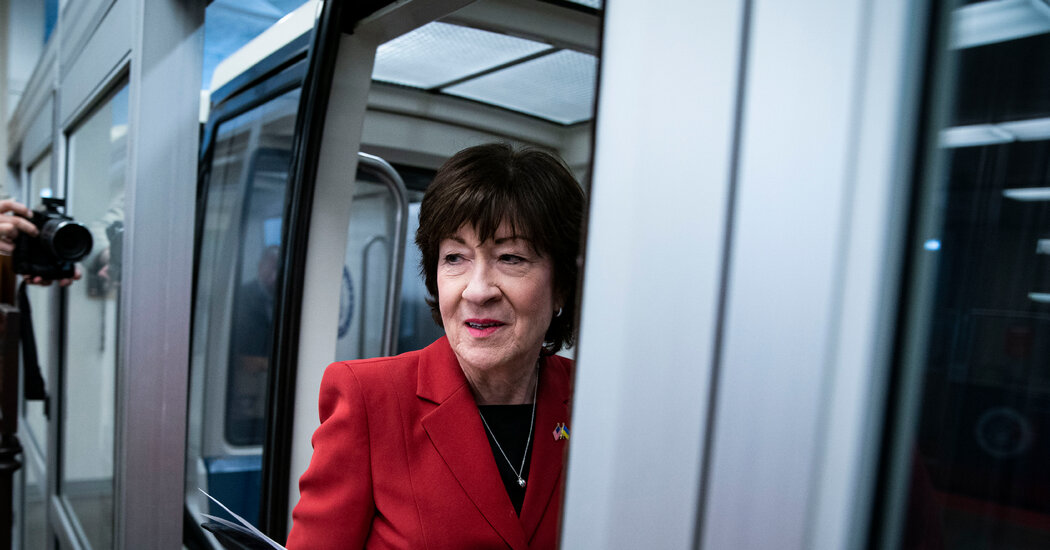Senator Susan Collins of Maine, always a closely watched Republican during Supreme Court confirmation debates, found herself in the spotlight again as
Senator Susan Collins of Maine, always a closely watched Republican during Supreme Court confirmation debates, found herself in the spotlight again as the first member of her party to declare that she would vote to confirm Judge Ketanji Brown Jackson.
Despite deep opposition in the Republican ranks, Ms. Collins decided to support the nominee after two extended interviews to explore her views. One of those sessions was after a contentious round of Judiciary Committee hearings last month, in which Republicans attacked Judge Jackson with questions that portrayed her as a liberal activist who was soft on criminals, particularly child sexual abuse defendants.
Ms. Collins said the second face-to-face meeting with the judge proved crucial to resolving some concerns that had emerged as a result of the questioning.
When she announced her position, the senator said she was willing to be the sole Republican to break with the party as long as she was comfortable with her decision. But she was no doubt happy that Senators Lisa Murkowski of Alaska and Mitt Romney of Utah decided to back Judge Jackson as well.
Ms. Collins said she viewed the assessment of a Supreme Court nominee differently from most of her colleagues. She examines the record, experience and background of the court pick to assess whether the person is qualified, she said; but unlike others, she does not factor strict ideological agreement into her thinking.
“Just as I have disagreed with some of her decisions to date, I have no doubt that, if Judge Jackson is confirmed, I will not agree with every vote that she casts as a justice,” Ms. Collins said in announcing her support. “That alone, however, is not disqualifying.”
Ms. Collins has voted for Supreme Court nominees put forward by Presidents George W. Bush, Barack Obama and Donald J. Trump. She opposed Amy Coney Barrett, Mr. Trump’s third nominee, because she disagreed with ramming the nomination through weeks before the 2020 presidential election — after Republicans in 2016 had cited an upcoming election, then 10 months away, as their rationale for blocking consideration of Merrick B. Garland, Mr. Obama’s third nominee.
Democrats regarded Ms. Collins’s decision on Justice Barrett as a move to bolster her bid for re-election in 2020. Her 2018 vote to confirm Justice Brett M. Kavanaugh despite sexual misconduct allegations against him was considered pivotal to his approval and drew the enmity of abortion rights groups.
Like many of her colleagues, Ms. Collins sees the confirmation process as flawed.
“No matter where you fall on the ideological spectrum,” she said, “anyone who has watched several of the last Supreme Court confirmation hearings would reach the conclusion that the process is badly broken.”
www.nytimes.com
